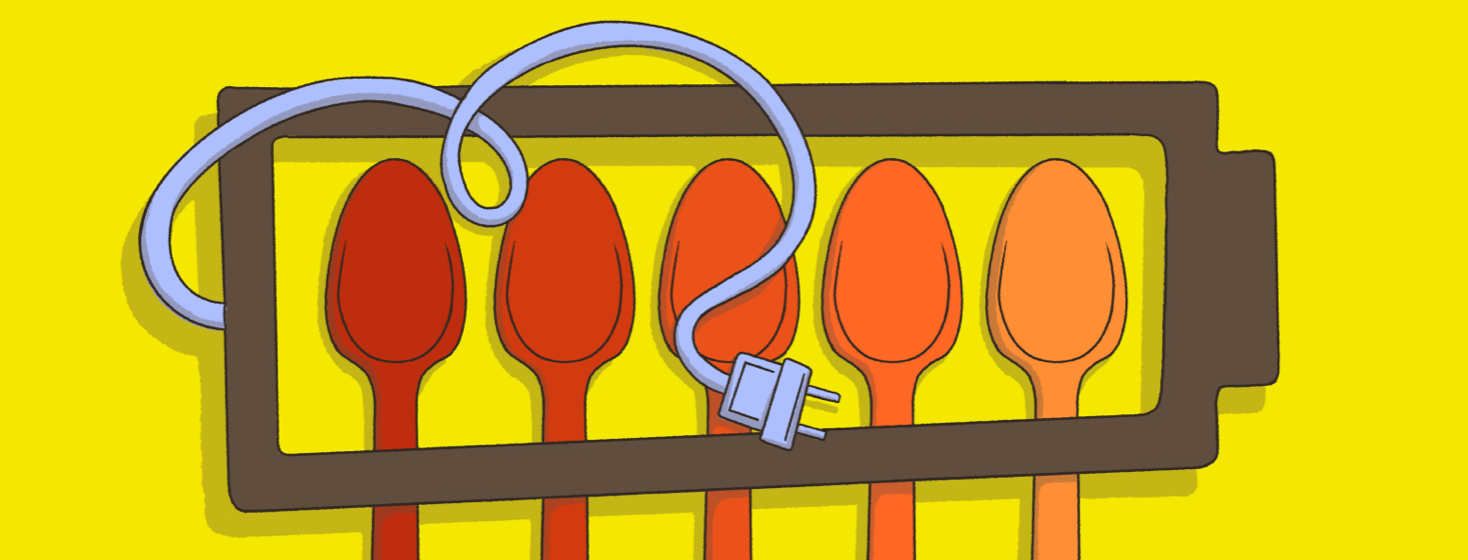2 Ways of Explaining Lupus Fatigue to Others
"I have chronic fatigue, but that doesn't necessarily mean that I'm tired 100 percent of the time," I explained to a new friend over dinner. He nodded, then looked confused.
"Then why is it called chronic fatigue?" he asked.
I paused with my fork over my plate of fajitas. Explaining lupus, especially the fatigue my disease causes, can be frustrating. It took years for me to understand my own condition, let alone sum it up in a few sentences to people who have never experienced health problems other than the occasional flu or virus.
A combination of being a teacher who spends all day explaining concepts, reading others' descriptions of lupus, and 12 years of living with this disease has improved my ability to describe what I live with every day. If you have able-bodied people in your life, feel free to steal either or both of these ways of explaining your life with lupus to them.
1. The Spoon Theory
If you're chronically ill, you've probably heard of The Spoon Theory. Popularized by Christine Miserandino, spoon theory helps people with chronic illness describe to people without chronic conditions what it feels like to be sick every day. While Christine was at a diner one day with a friend, her friend asked her to tell her exactly what it felt like to live with chronic fatigue. Christine gathered a handful of spoons from nearby tables. Being healthy means not having to budget your energy throughout the day, but when you have a chronic illness, you only have a finite amount of energy or spoons. Taking a shower might cost 3 spoons. Cooking dinner might cost 5. On a day when you're exhausted and only have 5 spoons, you might have to choose between cooking dinner and taking a shower.
Spoons are a metaphor for the limited energy lupus patients have for everyday tasks. Christine sums it this way: "The difference between being sick and being healthy is having to make choices or to consciously think about things when the rest of the world doesn't have to."
Spoon Theory has become so popular that chronically ill people sometimes refer to themselves as "spoonies."
2. Lupus is like a cell phone that won't charge
Have you ever had the experience of your cell phone battery dying? You're on 15 percent, yet you're across town and need Google maps to find your way home. Or, you need to call your doctor to refill a prescription, but you also need to text your mother to let her know you arrived home safely from your trip. Your battery is hovering around 6 percent, and you don't think you can do both.
Life with lupus is like having a cell phone with a faulty battery. Even if you charge it for 8 hours while you sleep, you might wake up to 80 percent battery or a cell phone that's only 40 percent charged. And if that's not frustrating enough, your battery might suddenly plunge from 60 percent to 20 percent in a matter of minutes.
When you have a cell phone with limited battery power, you must choose how you use it. You can't spend all day scrolling through Facebook because you might need your cell phone later in the day to make a phone call or give directions to a friend's housewarming party.
In the same way, you'd need to conserve your battery power on a dying cell phone. People living with lupus must carefully monitor their energy level throughout the day. Sometimes we wake up with enough energy to accomplish every activity we've planned for the day. Sometimes we wake up with limited battery power. When we don't have a lot of energy, we have to choose which activities to prioritize.
One part of life with lupus that has always required more energy than I think it should be explaining my disease to others. Hopefully, these 2 ways of describing lupus fatigue to others can help get your point across while expending the least spoons possible!

Join the conversation